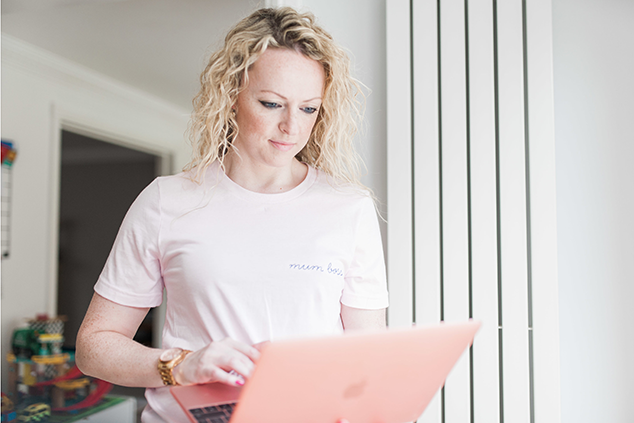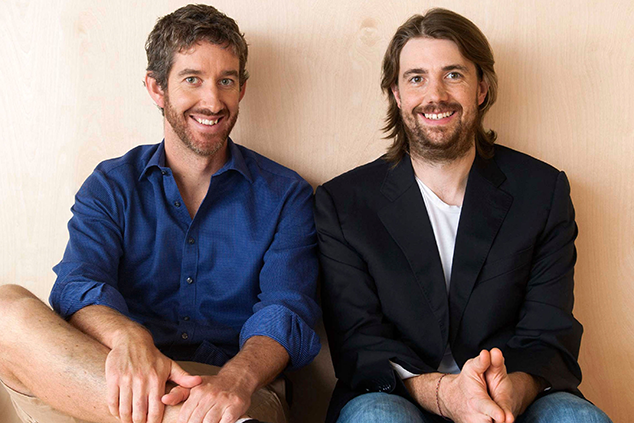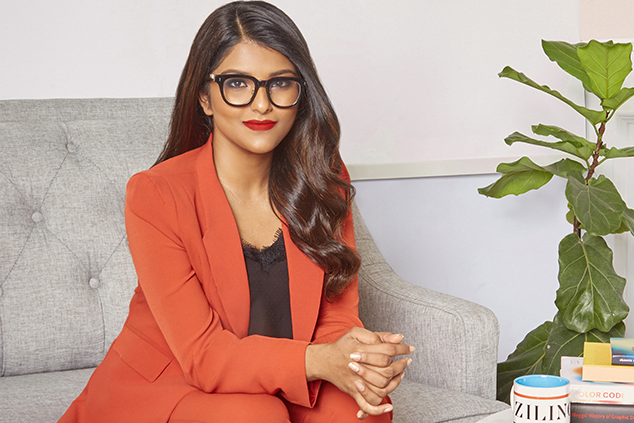Danielle Kendall: hatching a plan from a hen party
Danielle Kendall had had enough of tacky hen party gifts, so launched her own company, Team Hen, to make more tasteful products.

Get the latest financial news, insights and expert analysis from our award-winning MoneyWeek team, to help you understand what really matters when it comes to your finances.
You are now subscribed
Your newsletter sign-up was successful
Want to add more newsletters?

Twice daily
MoneyWeek
Get the latest financial news, insights and expert analysis from our award-winning MoneyWeek team, to help you understand what really matters when it comes to your finances.

Four times a week
Look After My Bills
Sign up to our free money-saving newsletter, filled with the latest news and expert advice to help you find the best tips and deals for managing your bills. Start saving today!

"I was looking for favours and gift bags and everything was just gross and garish. Flashing head boppers and tutus, really awful," Danielle Kendall, 36, tells Josie Griffiths in The Sun. She had been asked to organise a hen weekend, but the party products she had found online were "tacky". The bride "was in her early thirties and it was just not the sort of look she was going for". So Kendall decided to make her own.
Her range of "Team Hen" badges and gift bags proved a hit on the weekend away to Bath. "I threw myself into the plans, because it was quite boring being a stay-at-home mum," she says. She sold what was left on Etsy, a website for selling handmade items, reinvesting the proceeds. What had begun as a hobby became a business when Team Hen was listed on trendy retail website Not On The High Street (NOTHS) in 2015.
"We turned over more in the first week on NOTHS than we would in a month on Etsy that was when I realised it was a proper job," says Kendall.
MoneyWeek
Subscribe to MoneyWeek today and get your first six magazine issues absolutely FREE

Sign up to Money Morning
Don't miss the latest investment and personal finances news, market analysis, plus money-saving tips with our free twice-daily newsletter
Don't miss the latest investment and personal finances news, market analysis, plus money-saving tips with our free twice-daily newsletter
"I was working out of the spare room and at busy times we'd have to get the whole family involved." Sales jumped from £500 a month to £55,000 in the first year, then £150,000 in year two, and £180,000 the following year. This year, sales are projected to hit £250,000, with celebrities such as reality TV star Olivia Buckland becoming fans. She now has three employees working for her, all sourced from a local mums' Facebook group. "My staff are hugely flexible, which just supports the way we work."
A billion-dollar business and not a suit in sight

Scott Farquhar had been accepted into the Australian Defence Force Academy. But the letter confirming his place got lost in the post. If he had received it, things might have worked out very differently, the 39-year-old tells the BBC's Virginia Harrison. Instead, Farquhar enrolled on a computing degree at the University of New South Wales in Sydney, where he met Mike Cannon-Brookes. After graduating, they decided to work for themselves.
Their aims were simple: no suits, and earn more than A$48,500 (£26,000 a graduate-level salary). "At that stage I was living in a shared house at university and eating noodles every day," says Farquhar. "We didn't have much to lose."After a brief spell as a "terrible" tech support company, their focus switched to providing business software.
They founded Atlassian in 2002 with a credit card and not much else. Orders came mostly from friends at first, but then one day in 2003 a faxed purchase order arrived from American Airlines. "That was the turning point when we knew we'd make it," he says. Sales took off, and last year revenues topped $1bn. Thousands of firms use Atlassian's software, including big-name brands Coca-Cola, Twitter and Visa. In 2015 Atlassian listed on the Nasdaq stock exchange in New York. Today, it is valued at $25bn and Farquhar and Cannon-Brookes are worth around $7bn each.
Opening up Asia to fashion's small sellers

"I busted my ass, working 18 hours a day because it was so much fun," Ankiti Bose tells Yoolim Lee on Bloomberg.
Bose was working as a 23-year-old analyst at venture firm Sequoia India when she got chatting to a neighbour at a house party in the Indian tech capital of Bengaluru. She and Dhruv Kapoor, a 24-year-old software engineer, realised they had complementary talents and similar ambitions. So they decided to team up together.
Four months later, in 2015, they had quit their jobs and plunged $30,000 each of their savings into setting up Singapore-based Zilingo, an online fashion platform in southeast Asia, geared towards giving smaller sellers greater market presence. Listings on the platform are free, and Zilingo charges a commission of between 10% and 20% on orders. "We were a bunch of 20-somethings with nothing except this dream and we decided to chase it," says Bose.
As many small sellers lack technology and scale, Zilingo has since branched out into developing software and other tools to facilitate greater access to factories from Vietnam to Bangladesh, along with working capital, so that small sellers can buy the ingredients to make their goods.
Revenue came to S$1.8m ($1.3m) in the year to the end of March 2017, up from S$434,000 in the first year. It grew twelvefold in 2018, according to the firm. Last month, Zilingo raised $226m from investors, including Sequoia Capital, valuing the business at $970m. It has 400 employees in eight countries, and runs e-commerce sites in Indonesia, Thailand and the Philippines. An Australian launch is planned for the near future.
Get the latest financial news, insights and expert analysis from our award-winning MoneyWeek team, to help you understand what really matters when it comes to your finances.

-
 Should you buy an active ETF?
Should you buy an active ETF?ETFs are often mischaracterised as passive products, but they can be a convenient way to add active management to your portfolio
-
 Power up your pension before 5 April – easy ways to save before the tax year end
Power up your pension before 5 April – easy ways to save before the tax year endWith the end of the tax year looming, pension savers currently have a window to review and maximise what’s going into their retirement funds – we look at how